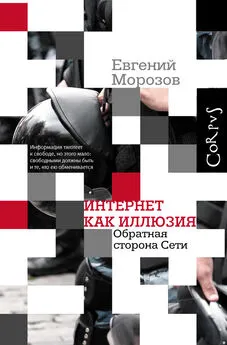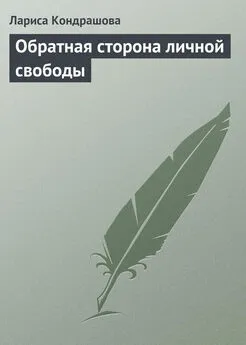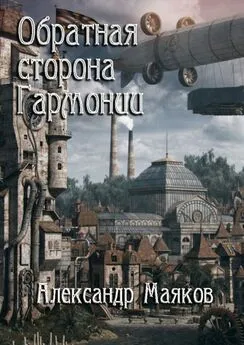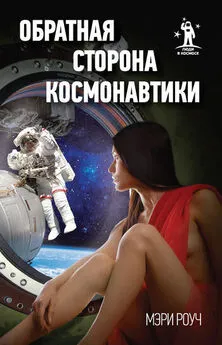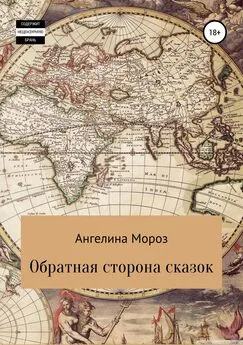Евгений Морозов - Интернет как иллюзия. Обратная сторона сети
- Название:Интернет как иллюзия. Обратная сторона сети
- Автор:
- Жанр:
- Издательство:Array Литагент «Corpus»
- Год:2014
- Город:Москва
- ISBN:978-5-17-084792-1
- Рейтинг:
- Избранное:Добавить в избранное
-
Отзывы:
-
Ваша оценка:
Евгений Морозов - Интернет как иллюзия. Обратная сторона сети краткое содержание
Интернет как иллюзия. Обратная сторона сети - читать онлайн бесплатно полную версию (весь текст целиком)
Интервал:
Закладка:
Norris, P. A Virtuous Circle? The Impact of Political Communications in Post-Industrial Democracies / In: Papers for the Annual Meeting of the Political Studies Association of the UK, London School of Economics and Political Science. 2000.
Nye, J. S., Jr. Cyber Power . Cambridge, MA: Belfer Center for Science and International Affairs, Harvard University, 2010.
Obama Bemoans “Diversions” of iPod, Xbox Era // Agence France-Presse, May 9, 2010.
Obama Pushes China to Stop Censoring Internet // National Public Ra-dio, November 16, 2010.
Oboler, A. The Rise and Fall of a Facebook Hate Group // First Mon-day 13, no. 11–3 (2008).
O’Reilly, Tim My Contrarian Stance on Facebook and Privacy // O’Reilly Radar, May 21, 2010. radar.oreilly.com/2010/05/my-con-trarian-stance-on-facebook-privacy.html.
Orlowski, Andrew Google Buys CIA-Backed Mapping Startup // Register, October 28, 2004. www.theregister.co.uk/2004/10/28/ google_buys_keyhole/.
Parks, L. Digging into Google Earth: An Analysis of “Crisis in Dar-fur” // Geoforum 40, no. 4 (2009): 535–545.
Peterson, Chris In Praise of [Some] DDoSs? // Chris Peterson’s blog, July 21, 2009. www.cpeterson.org/2009/07/21/in-praise-of-some-ddoss/.
Prior, Markus Liberated Viewers, Polarized Voters: The Implications of Increased Media Choice for Democratic Politics // Good Soci-ety 11, no. 3 (2002): 10–16.
Prior, Markus Post-Broadcast Democracy: How Media Choice In-creases Inequality in Political Involvement and Polarizes Elections . New York: Cambridge University Press, 2007.
Radsch, C. Core to Commonplace: The Evolution of Egypt’s Blogo-sphere // Arab Media & Society 6 (2008).
Rajadhyaksha, M. Genocide on the Airwaves: An Analysis of the International Law Concerning Radio Jamming // Journal of Hate Studies 5, no. 1 (2010): 99.
Robinson, P. The CNN Effect: Can the News Media Drive Foreign
Policy? // Review of International Studies 25, no. 2 (1999): 301–309. Salmanov, Oleg, and Anastasia Golitsyna Reiman Con-firms New Search Project // Moscow Times, July 8, 2010.
Security Fears over Map Site // Daily Record (Glasgow), December 21, 2005. Senators Announce Formation of Global Internet Freedom Caucus //
John McCain’s Press Office, March 24, 2010.
Sex, Social Mores, and Keyword Filtering: Microsoft Bing in the “Arabian Countries” // OpenNet Initiative, March 4, 2010. opennet.net/ sex-social-mores-and-keyword-filtering-microsoft-bing-arabian-countries.
Shachtman, Noah Exclusive: U. S. Spies Buy Stake in Firm That Mon-itors Blogs, Tweets // Danger Room, Wired.com, October 19, 2009.
www.wired.com/dangerroom/2009/10/exclusive-us-spies-buy-stake-in-twitter-blog-monitoring-firm/.
Sharma, Amol, and Jessica E. Vascellaro Google and India
Test the Limits of Liberty // Wall Street Journal, January 4, 2010. Sheridan, Barrett The Internet Helps Build Democracies //
Newsweek, April 30, 2010.
Stahl, R. Becoming Bombs: 3 D Animated Satellite Imagery and the
Weaponization of the Civic Eye // MediaTropes 2, no. 2 (2010): 65. Stanek, Steven Egyptian Bloggers Expose Horror of Police Torture //
San Francisco Chronicle, October 9, 2007.
Talbot, David Bing Dinged on Arab Sex Censorship // Technol-ogy Review Editors’ Blog, March 4, 2010. www.technologyre-view.com/blog/editors/24891/?utm_source=twitterfeed&utm_ medium=twitter.
Turkish Engineers Developing Internet Search Engine // World Bul-letin, November 28, 2009. www.worldbulletin.net/news_detail. php?id=50543.
24 Hours of Video Uploaded to YouTube Every Minute // Agence France-Presse, March 17, 2010.
Vedel, T. The Idea of Electronic Democracy: Origins, Visions and
Questions // Parliamentary Affairs 59, no. 2 (2006): 226. Weintraub, Seth Google to Open ‘Google Ideas’ Global Technol-ogy Think Tank // “Google 24/7” blog, Fortune, August 15, 2010. tech.fortune.cnn.com/2010/08/15/google-to-open-google-ideas-global-technology-think-tank/.
Wilson, Paul IPv 6 Answers to Common Questions from Policy Makers, Executives and Other Non-Technical Readers // CircleID, November 8, 2009. www.circleid.com/posts/ipv6_answers_to_most_common _questions_for_non_technical/.
Wong, Albert, and Fanny W. Y. Fung Facebook Questioned as Political Pages Shut Down // South China Morning Post, Febru-ary 6, 2010.
Wood, B. D., and J. S. Peake The Dynamics of Foreign Policy Agen-da Setting // American Political Science Review 92, no. 1 (1998): 173–184.
Worthen, Ben Internet Strategy: China’s Next Generation Inter-net // CIO.com, July 15, 2006. www.cio.com/article/22985/Inter-net_Strategy_China_s_Next_Generation_Internet.
Wright, Robert The Internet vs. Obama // Opinionator Blog, New York Times, February 2, 2010. opinionator.blogs. nytimes.com/2010/02/02/obamas-modern-predicament/.
York, Jillian Facebook Removes Moroccan Secularist Group and Its Founder // Global Voices Advocacy, March 14, 2010. advocacy. globalvoicesonline.org/2010/03/14/facebook-removes-moroccan-atheist-group – and-its-founder/.
Глава 9. Свобода интернета и ее последствияТрифонов, Владислав ФСБ разыграла “Большую игру”: раскрыт заговор о захвате власти в интернете // Коммерсант. 11 августа 2009 года.
Alexseev, M. A. Majority and Minority Xenophobia in Russia: The
Importance of Being Titulars // Post-Soviet Affairs 26, no. 2 (2010): 89–120.
Allen-Mills, Tony Mexican Drug Gangs Take Their Turf Wars onto
YouTube // Times of London, April 15, 2007.
Allnutt, Luke Twitter Doesn’t Start a Revolution, People Do //
Christian Science Monitor, February 8, 2010.
Amer, Pakinam Muslim Brotherhood Use New Media to Document
History // Al-Masry Al-Youm, February 23, 2010. www.almasry-alyoum.com/en/news/ muslim-brotherhood-use-new-media-doc-ument-history.
Anderson, Benedict Imagined Communities: Reflections on the
Origin and Spread of Nationalism . London: Verso, 1991. Apodaca, C. The Whole World Could Be Watching: Human Rights and the Media // Journal of Human Rights 6, no. 2 (2007): 147–164.
Armony, Ariel C. The Dubious Link: Civic Engagement And De-mocratization . Stanford, CA: Stanford University Press, 2004.
Arshad, Arlina Desperate Indonesians Sell Organs Online // Agence
France-Presse, December 17, 2009.
Auten, B. J. Political Diasporas and Exiles as Instruments of State-craft // Comparative Strategy 25, no. 4 (2006): 329–341.
BÄck, H., and A. Hadenius Democracy and State Capacity: Ex-ploring a Jshaped Relationship // Governance 21, no. 1 (2008): 1–24.
Baldauf, Scott Can Kenya Stop Violence After Vote? // Christian Science Monitor, January 2, 2008.
Balkin, Jack M. Information Power: The Information Society from an Antihumanist Perspective / Social Science Research Network eLib-rary (2010). papers.ssrn.com/sol3/papers.cfm?abstract_id=1648624.
Bangre, Habibou Kenya: SMS Text Messages the New Guns of War? // Afrik-News, February 20, 2008. www.afrik-news.com/ article12629.html.
Bezlova, Antoaneta China: Battle with Tradition Spills into Cy-berspace // Inter Press Service, April 7, 2002.
Billig, Michael Banal Nationalism . Thousand Oaks, CA: Sage, 1995. Blum, B. S., and A. Goldfarb Does the Internet Defy the Law of
Gravity? // Journal of International Economics 70, no. 2 (2006): 384–405.
Brenner, N. Beyond State-Centrism? Space, Territoriality, and Geo-graphical Scale in Globalization Studies // Theory and Society 28, no. 1 (1999): 39–78.
Bunt, Gary R. iMuslims: Rewiring the House of Islam . Chapel Hill: University of North Carolina Press, 2009.
Burstein, A. Jefferson’s Rationalizations // William and Mary Quar-terly 57, no. 1 (2000): 183–197.
Cambodia Lambast Google Earth for Locating Temple in Thai Soil // Nation/Asia News Network, February 10, 2010. www.asiaone. com/News/Latest+News/Asia/Story/A1Story20100210–197804. html.
Castells, Manuel The Internet Galaxy: Reflections on the Internet, Business, and Society . Oxford: Oxford University Press, 2003. Chan, B. Imagining the Homeland: The Internet and Diasporic Dis-course of Nationalism // Journal of Communication Inquiry 29, no. 4 (2005): 336.
Craig, G. A. The Professional Diplomat and His Problems, 1919–1939 // World Politics: A Quarterly Journal of International Relations 4, no. 2 (1952): 145–158.
Currion, Paul Better the Devil We Know: Obstacles and Opportuni-ties in Humanitarian GIS // Humanitarian.info, January 25, 2006. www.humanitarian.info/humanitarian-gis/.
Currion, Paul Correcting Crowdsourcing in a Crisis // Humanitarian. info, March 30, 2009. www.humanitarian.info/2009/03/30/correcting-crowdsourcing-in-a-crisis/.
Cyber-Nationalism: The Brave New World of E-hatred // Economist, July 24, 2008.
Dahlberg, L. Rethinking the Fragmentation of the Cyberpublic: From Consensus to Contestation // New Media & Society 9, no. 5 (2007): 827.
Dewan, Shaila Chinese Student in U. S. Is Caught in Confrontation // New York Times, April 17, 2008.
Doppelt, G. What Sort of Ethics Does Technology Require? // Journal of Ethics 5, no. 2 (2001): 155–175.
Edmunds, A., and A. Morris The Problem of Information Over-load in Business Organisations: A Review of the Literature // International Journal of Information Management 20, no. 1 (2000): 17–28.
Eriksen, T. H. Nations in Cyberspace . Short version of the 2006 Er-nest Gellner Lecture , delivered to the ASEN conference, London School of Economics, March 27, 2006.
Eriksson, J., and G. Giacomello Who Controls the Internet? Beyond the Obstinacy or Obsolescence of the State // International Studies Review 11, no. 1 (2009): 205–230.
Eriksson, J., and G. Giacomello The Information Revolution, Security, and International Relations: (IR) Relevant Theory? // In-ternational Political Science Review/ Revue internationale de science politique 27, no. 3 (2006): 221.
Eriksson, J., and M. Rhinard The Internal-External Security Nexus: Notes on an Emerging Research Agenda // Cooperation and Conflict 44, no. 3 (2009): 243.
Evers, C. The Cronulla Race Riots: Safety Maps on an Australian
Beach // South Atlantic Quarterly 107, no. 2 (2008): 411. Feenberg, A. Democratizing Technology: Interests, Codes, Rights //
Journal of Ethics 5, no. 2 (2001): 177–195.
Feenberg, A. Subversive Rationalization: Technology, Power, and Democracy // Inquiry 35, no. 3 (1992): 301–322.
Finel, B. I., and K. M. Lord The Surprising Logic of Transparency //
International Studies Quarterly 43, no. 2 (1999): 325–339. Fukuyama, F. Social Capital and Development: The Coming Agenda //
SAIS review 22, no. 1 (2002): 23–38.
Giridharadas, Anand Ushahidi – Africa’s Gift to Silicon Valley:
How to Track a Crisis // New York Times, March 12, 2010. Glionna, John M. Korea Activists Target Foreign English Teachers //
Читать дальшеИнтервал:
Закладка:
